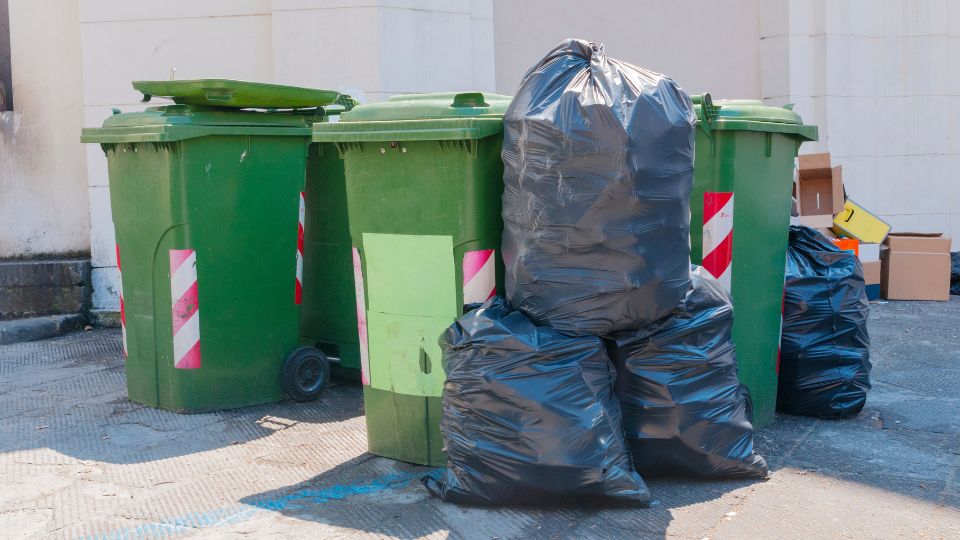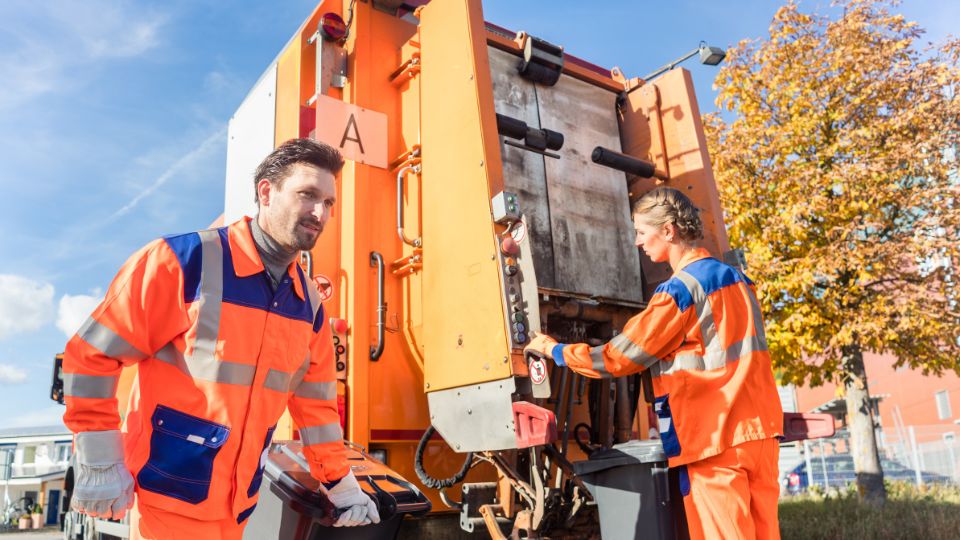
As a UK business owner, managing waste efficiently and in compliance with regulations is crucial. Traditional waste management often relies on wheelie bins, but for many businesses, this method can be impractical.
Enter bin bag collections, aka business waste sacks; a versatile and efficient alternative.
This guide will help you understand how these collections work, their benefits, and how they can be implemented in your business.
What are Commercial Bin Bag Collections?
Bin bag collections involve the use of durable waste sacks instead of wheelie bins. These sacks are used to separate and store different types of waste, which are then collected by waste management services.
This method is particularly useful for businesses that produce various types of waste and need to adhere to strict recycling regulations without the space or capacity for multiple wheelie bins.
Why Choose Bin Bag Collections?
Space Efficiency
- Limited Space: Many businesses, especially those in urban areas, do not have the space for multiple wheelie bins. Bin bags take up less space and can be stored more flexibly. Bin stores can be a practical solution by offering businesses a dedicated area designed to hold multiple bins or sacks in an organized manner.
- Versatility: Bin bags can be easily placed in different areas of your premises, making waste segregation more convenient.
Regulatory Compliance
- Meeting Regulations: New legislation in Wales, for instance, requires businesses to separate their waste streams. Bin bag collections make it easier to comply with such regulations without the logistical nightmare of managing numerous wheelie bins.
- Recycling Efficiency: Properly labelled waste sacks help ensure that different types of waste are correctly sorted and recycled, reducing contamination and improving recycling rates.
How Do Bin Bag Collections Work?
Waste Segregation
- Identify Waste Streams: Determine the types of waste your business generates. Common categories include general waste, food waste, glass, paper and cardboard, metals, plastics, textiles, and WEEE (Waste Electrical and Electronic Equipment).
- Labelling: Use colour-coded or labelled sacks to differentiate between waste types. This helps in maintaining proper segregation and ensures that each type of waste is handled correctly.
Collection Process
- Scheduling Collections: Work with a waste management service to set up a collection schedule. This can be tailored to your business’s needs, ensuring timely removal of waste without overflow.
- Collection Day: On collection days, place the filled sacks at the designated pickup point. The waste management team will collect and transport the sacks to the appropriate recycling or disposal facilities.
Conclusion
Bin bag collections and business waste sacks offer a practical, efficient, and cost-effective solution for managing commercial waste.
By choosing this method, your business can meet regulatory requirements, reduce costs, and manage space more effectively. Whether you’re dealing with general waste, recyclables, or specific waste streams like WEEE, bin bag collections provide the flexibility and efficiency modern businesses need.
By understanding and implementing bin bag collections, you can improve your waste management practices and contribute to a more sustainable and compliant business operation.








